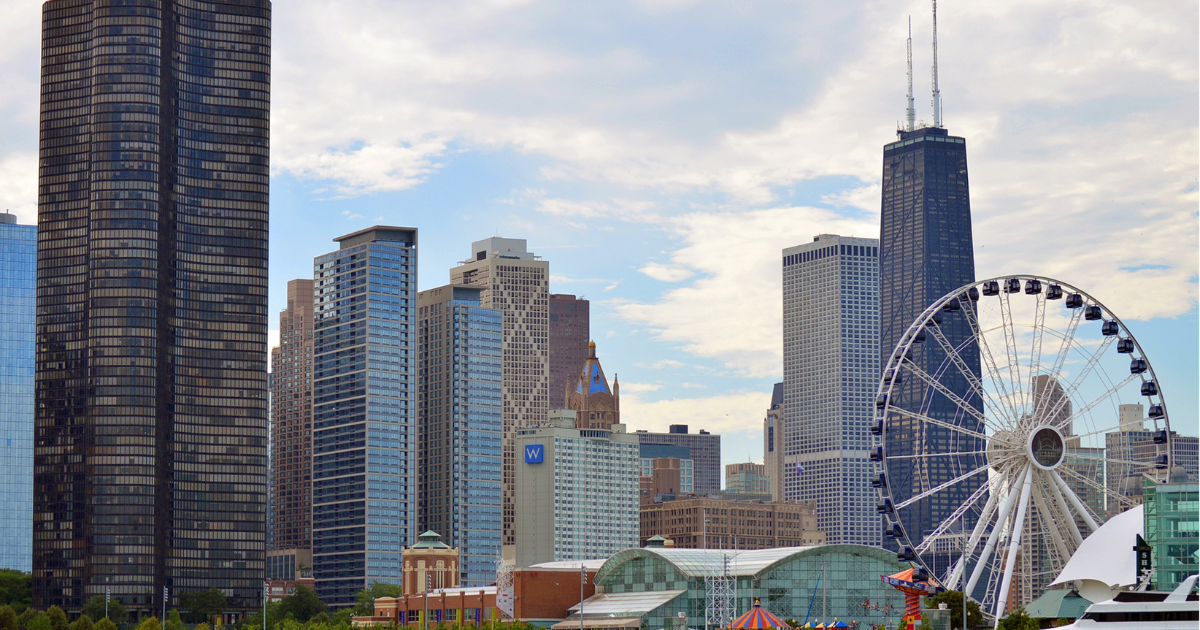British Columbia (BC), known for its scenic beauty and high standard of living, is a coveted province to reside in Canada. However, the cost of living can be prohibitive in some cities.
Understanding the importance of affordability when choosing a place to live, we have compiled a list of the cheapest places to live in British Columbia.

Understanding Affordability
Affordability is more than just low-cost housing; it’s about getting the most value for your money. The cost of groceries, utilities, transportation, health care, education, and leisure activities all contribute to a city’s affordability.
Therefore, when looking for the cheapest places to live in British Columbia, consider these factors in addition to housing costs.
Top 5 Most Affordable Cities to Live in British Columbia
Below are the top five most affordable cities to live in British Columbia:
1. Kamloops: Kamloops is considered one of the most affordable cities in BC. Known for its sunny weather and outdoor recreational activities, it offers a lower-than-average cost of basic amenities and housing prices. Kamloops also has a diverse economy with job opportunities in healthcare, tourism, education, and transportation.
2. Kelowna: Another city that tops the list of affordable places to live in BC is Kelowna. It strikes a balance between affordability and lifestyle, with reasonable housing prices and living expenses. The city has a thriving job market, especially in the healthcare and education sectors, and offers a plethora of recreational activities, making it an attractive place to live.
3. Colwood: Located on Vancouver Island, Colwood is known for its affordable real estate market and high quality of life. It boasts a rich history, scenic beauty, and a range of outdoor activities. The cost of living is relatively low compared to other cities in the province, making it an attractive option for families and retirees.
4. Campbell River: Known as the “Salmon Capital of the World,” Campbell River offers affordability along with a laid-back lifestyle. The city has a robust economy with industries like aquaculture, agriculture, clean energy, and tourism providing ample job opportunities. The cost of housing and basic amenities is considerably lower than in larger cities.
5. Sooke: Sooke is another affordable city located on the southern tip of Vancouver Island. It offers a rural lifestyle with the benefits of urban amenities. The cost of living is reasonable, with affordable housing options and lower costs for groceries and utilities. Its close proximity to nature and the ocean adds to its appeal.
Note: While these cities are more affordable compared to others in BC, the cost of living can still vary based on personal lifestyle and income. Always consider factors such as employment opportunities, education facilities, healthcare services, and overall quality of life when choosing a place to live.
Outside Vancouver: Affordable Alternatives
While Vancouver is known for its high cost of living, several affordable alternatives outside the city offer a lower cost of living while still providing easy access to Vancouver’s amenities. Here are some of them:
1. Surrey: Located just southeast of Vancouver, Surrey is one of the fastest-growing cities in Canada. It offers a lower cost of living compared to Vancouver, with more affordable housing options. The city is diverse, with a mix of urban and rural areas, and has a thriving economy with job opportunities in sectors like health care, education, and technology.
2. Langley: Langley is another affordable alternative to Vancouver. The city offers a mix of suburban and rural living, with plenty of green spaces and outdoor recreational activities. Housing prices are significantly lower than in Vancouver, making it an attractive option for families and first-time home buyers.
3. Delta: Delta, located south of Vancouver, is known for its rich agricultural land and vibrant communities. The cost of living in Delta is more affordable than in Vancouver, with reasonably priced housing, groceries, and utilities. The city also offers excellent schools and recreational facilities.
4. Fraser Valley: Fraser Valley, encompassing cities like Abbotsford and Chilliwack, offers a lower cost of living with easy access to Vancouver. The area is known for its beautiful landscapes, outdoor activities, and agricultural richness. Housing prices are significantly lower, making it an affordable place to live.
5. Maple Ridge: Maple Ridge, nestled between the Fraser River and the Golden Ears mountain range, offers affordable housing options and a lower cost of living. The city is known for its natural beauty, outdoor recreation opportunities, and close-knit community.
These cities offer a balance of affordability and quality of life, making them excellent alternatives to Vancouver. However, it’s important to consider factors such as commuting times and job opportunities when choosing a place to live outside of Vancouver.
Benefits of Living in Affordable Cities
Living in cheap cities comes with several benefits:
1. Lower Housing Costs: One of the main advantages is lower housing costs. Affordable cities usually have cheaper rent or lower home prices, which can free up a significant portion of your income for other expenses or savings.
2. Reduced Cost of Living: Apart from housing, the cost of groceries, utilities, transportation, healthcare, and other essentials tends to be lower in affordable cities. This can help stretch your budget further.
3. Less Financial Stress: Lower living costs can result in less financial stress. You may find it easier to pay your bills, save for the future, and have discretionary income for leisure activities.
4. Opportunities for Homeownership: In cities where housing is more affordable, the dream of homeownership becomes more attainable. This can provide long-term financial benefits, including equity building.
5. Quality of Life: Many affordable cities also offer a high quality of life, with access to outdoor recreational activities, cultural events, good schools, and healthcare facilities.
6. Community Engagement: Smaller, more affordable cities often have a stronger sense of community. The cost of participating in local events, clubs, or organizations might also be lower.
7. Potential for Investment: If you choose to buy a home in an affordable city, there could be potential for property value appreciation over time, particularly if the city is on a growth trajectory.
While there are benefits of living in the cheapest cities in British Columbia, there are also challenges.
Challenges in Affordable Cities
Below ar the challenges of living in an affordable city:
1. Limited Job Opportunities: Affordable cities may have fewer job opportunities, particularly in specialized or high-paying industries. The local economy might be dependent on a few key sectors, which can be risky if those sectors face downturns.
2. Lesser Amenities: Some affordable cities may lack certain amenities found in larger cities. This could include fewer shopping venues, restaurants, cultural institutions like museums and art galleries, or entertainment options.
3. Limited Public Transportation: Affordable cities, especially smaller ones, often have limited public transportation options. This can make getting around without a car more difficult and potentially increase your transportation costs if you need to own a vehicle.
4. Slower Pace: Life in smaller, more affordable cities tends to move at a slower pace than in larger metropolitan areas. While this can be a benefit for some, others might find it less stimulating or boring.
5. Less Diversity: Affordable cities might have less cultural and ethnic diversity, which can impact the availability of diverse food options, cultural events, and social opportunities.
6. Distance from Family and Friends: If moving to an affordable city means moving away from family and friends, this can be a significant downside. It’s important to factor in the emotional and financial costs of being further away from your support network.
7. Potential for Growth: While affordable cities might offer potential for investment growth, they can also carry the risk of economic stagnation or decline, which could impact property values and job opportunities.
However, these challenges can be overcome with proper planning and flexibility. Ultimately, it’s crucial to weigh the pros and cons before deciding to move to an affordable city.
Consider visiting the city first to get a sense of the lifestyle and opportunities it offers.
Frequently Asked Questions About the Cheapest Cities to Live in BC
Why is Prince George considered an affordable city?
Prince George has a lower cost of living compared to many other cities in BC. Housing, groceries, and other essential expenses tend to be less expensive here.
How does the cost of living in Kamloops compare to Vancouver?
The cost of living in Kamloops is significantly lower than in Vancouver, especially when it comes to housing costs. However, salaries may also be lower on average.
Are there job opportunities in these affordable cities?
Yes, there are job opportunities in these cities across various sectors. However, the availability of jobs can depend on your specific skillset and the industry you're interested in.
What kind of amenities can I expect in these affordable cities?
These cities offer many amenities including parks, cultural events, shopping venues, and restaurants. However, the diversity and quantity of amenities might be less compared to larger cities like Vancouver or Victoria.
What is the quality of schools in these affordable cities?
Many affordable cities have good schools. It's recommended to research specific schools in the area for more detailed information.
What are the potential downsides of living in these affordable cities?
Potential downsides could include fewer job opportunities in certain sectors, less cultural diversity, limited public transportation options, and being farther away from family and friends if they live in larger cities.
Can I expect property prices to appreciate in these affordable cities?
Property appreciation can vary and depends on various factors including the city's growth trajectory, economic health, and demand for housing. It's advisable to research local real estate trends or consult with a real estate professional.
How is the healthcare system in these affordable cities?
These cities have healthcare facilities, but the range of services might be less comprehensive compared to larger cities. If you require specialized medical care, ensure it's available in the city you're considering.
Are these cities good for raising a family?
Many affordable cities are great for raising a family, offering good schools, outdoor recreation opportunities, and a strong sense of community. However, individual preferences and needs may vary.
Conclusion
Choosing where to live is a significant decision. While affordability is an essential factor, it’s also important to consider the quality of life, job opportunities, and personal preferences.
The cities mentioned above are some of the cheapest places to live in British Columbia, offering a balance of affordability, quality of life, and opportunity. Consider each city carefully and choose the one that best suits your lifestyle and budget.



